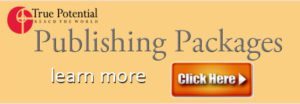When your manuscript is finished and you’re ready to choose a publisher or try self-publishing, how do you make the right decision? Here’s my best advice.
Self-publishing
 First, understand that you can choose real “self-publishing” where you try to do all of the work yourself, that a publisher would normally be responsible for: editing, cover design, printing, ebook development, distribution, marketing, sales, and fulfillment. Then there’s hiring a “self-publishing” or “publishing services” company to do some or all of the work a publisher would normally be responsible for.
First, understand that you can choose real “self-publishing” where you try to do all of the work yourself, that a publisher would normally be responsible for: editing, cover design, printing, ebook development, distribution, marketing, sales, and fulfillment. Then there’s hiring a “self-publishing” or “publishing services” company to do some or all of the work a publisher would normally be responsible for.
Going it alone: There are advantages and disadvantages to both, but the important thing to remember is that you’re still self-publishing; you’re still solely responsible for the success of your book. The advantage to doing everything yourself (real self-publishing) is that you’ll (theoretically) save the money you’d pay a “self-publishing” or “publishing services” company to do the work for you. The disadvantage to doing everything yourself is that, chances are, you’ve never published a book before and have no clue where to begin or how to accomplish any of the tasks of a publisher. You’re on your own and you’d better be a very good, very patient student. You may find that self-publishing your book is a lot harder than writing it.
The biggest complaint I hear from authors who have chosen to self-publish is that they spend so much time being a “publisher” that there’s no time left to be an author.
Hiring a “Self-publishing” company: The biggest advantage to hiring a “self-publishing” or “publishing services” company is that they will take care of many “publishing” tasks such as editing, cover design, e-book development, printing, and distribution. And they’ve done this before so they may be more proficient (we would hope) at these tasks than you would be. The downside to hiring a “self-publishing” or “publishing services” company is that they cost money; sometimes more money than it would cost you to publish through a real publishing company.
Word of warning: Remember that “self-publishing” and “publishing services” companies are not in the business of selling books; they’re in the business of selling authors. You’re the commodity. They’re not interested in how successful your book is after it’s published. Once the transaction is over, you’re on your own again. Be ready to understand why they call is self-publishing.
Here are my best resources on self-publishing:
- My free e-book: The 10 Biggest Mistakes Self-Published Authors Make (click here)
- My blog post series based on the book: The 10 Biggest Mistakes Self-Published Authors Make (click here)
- CreateSpace, when free isn’t
Choosing a publisher
The publisher you choose should be in the business of selling books, not just selling authors. What I mean is, your publisher should make more of its revenue from selling books than selling “self-publishing” services to authors. Avoid publishers that identify themselves as a “self-publishing” or “publishing services” company, as we discussed above.
Ask the publisher you’re considering how many books they’ve sold, how much of their revenue comes from book sales and if their authors have a path to a traditional (when the publisher pays the publishing cost) publishing relationship.
Traditional publishers

Traditional publishers?
Traditional publishers underwrite their publishing cost by publishing only well-known or celebrity “commercially viable” authors, guaranteed to sell tens of thousands of copies of any book they publish.
Traditional publishers often lug around an expensive, top-heavy, usually out-dated infrastructure and rely on equally expensive and out-dated distribution systems. By the time all the ‘costs’ are added up, the discounts given and the retailer returns counted there’s not much profit left. The traditional publishing model is simply too risky and too costly to take a chance on any author who doesn’t already have a proven audience in the multiplied thousands.
A new publishing model
At True Potential, we make 80% of our revenue from book sales and the rest from marketing, services and digital education programs. That means, even though we sell more than books, books are our lifeblood. We are in the book business. Unless we (and you) are selling your books, neither of us is happy.
You don’t have to be a TV superstar or mega-church pastor to publish with us. True Potential is geared toward Christian ministry and business professionals. If you already have an audience and are active in public ministry or business, we’re the publisher that can make your book a reality.

A publishing model built in this century, for this century.
Publishing with us is pretty simple. Each publishing package includes “author’s copies.” These are the books you’ll sell to your own audience, usually at the full cover price. Did you know that selling as few as 500 books to your own audience can completely cover the cost of publishing? Don’t worry, we’ll show you how to do that.
You make a 60% profit on books you sell to your audience, and you can order additional books at a 60% discount anytime. We pay you a 15% royalty for books we sell through our own channels. We also create and distribute e-versions of your book and pay you a 50% royalty on e-book sales.
Your book, your ministry or business, and your audience deserve a publishing model that was built in this century, for this century. Make sure the publisher you choose isn’t still doing business “the way we’ve always done it.” That doesn’t work anymore.
Here are my best resources on choosing a publisher:
- My free ebook: Seven Questions that will Turn Your Manuscript into a Successful Book (click here)
- My blog post series based on the book: Seven Questions Series (click here)
- One of the most important decisions you’ll ever make (click here)

